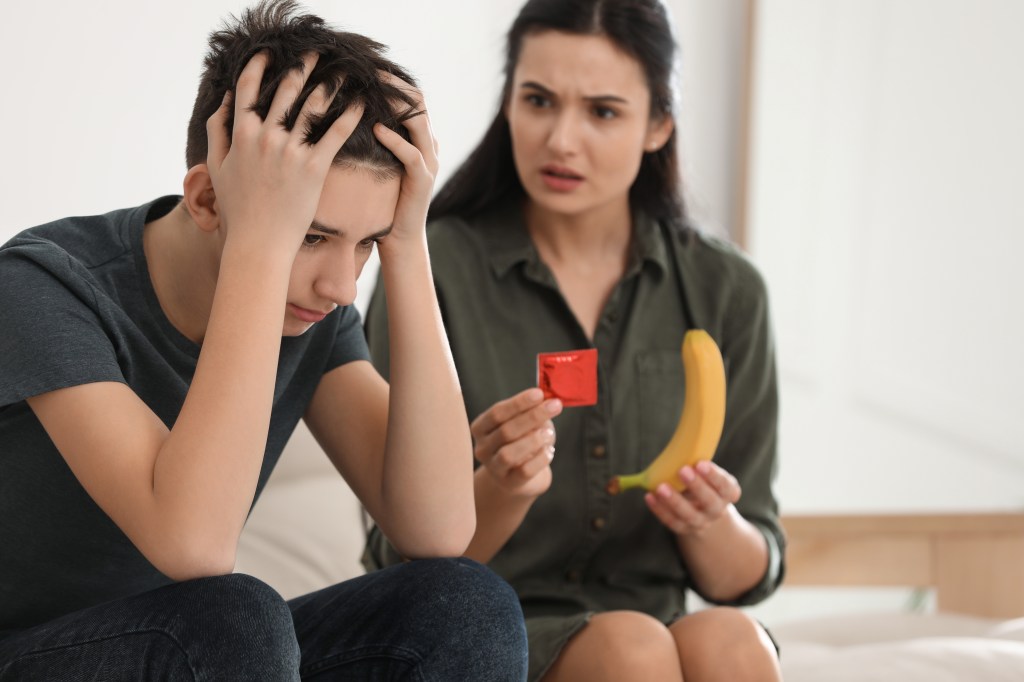When my son was about three years old, he started pushing his sister to have fun.
They were young and clean children, both learning about the limits. Each time I did, I would say the same thing: “He said yes?”
It seems to me a strange thing to ask a preschool, but for me, it was the beginning of a conversation that I knew I couldn’t wait until puberty.
I am a mother of four: two girls, two boys. And after years of seeing how children absorb the world around them, I have realized that some of the greatest values we want to lead life (kindness, empathy, limits) are built in these early years.
Not when they start to leave. Not when the school sends home a permit for “this talk”. But much, much before.
Consent starts early (even if we don’t say that)
In our country, we do not always use the word “consent” with our children. What we are talking about is listening, stop, record. If someone cries, we ask, “They like it?” If someone does not want to tickle or hug or go up, we say, “OK, they said no. We stop now.”
It is not a great dramatic lesson. It is just a part of the way we interact.
Nor is it perfect. There are still search of brothers and tears and moments that I manage badly. But the general message is there: your body belongs to you. And other people must also be respected.
This is not just a conversation for girls
We talk about consent in our country and not only because we have daughters. And yes, I want my girls to grow up knowing that they can say that no guilt. May their safety and comfort are important. That they do not have to explain or justify why something is not feeling well.
But I also have children. And I want them to grow by understanding that no one owes one yes. He liked that, or to be in love, or even say -“maybe” does not mean that someone agrees with something.
Like it is important, I want you to know that they cannot say -too. To peer pressure. A friend is too rough. To anything that makes them uncomfortable.
Consent is not only relevant in the bedroom. It is part of playing strongly. Sharing toys. Know when a joke has gone too far. Understand that no one owes you affection, attention or anything else.

It is not about “waking up”
Sometimes, when he mentioned this to other parents, his eyes were wound. As if I were trying to turn my children into human resources manuals.
But this is not labels or politics. It is about helping them grow with the type of consciousness that I would like to have more of us when we were younger.
Because if we are honest, many of us were raised in a world where it was not always respected “no”. Where to say “I’m not sure” left room for negotiation. Where we were taught to be educated, even when we felt insecure.
I don’t want this for my children, none of them. I want them to grow up feeling -safe in their limits and reflect on others.
It’s a long game
There is no conversation that marks the consent box. They are a hundred small moments. It is to stop a game when someone says it stops. He is not forcing goodbyes to hugs when they have no good mood. It teaches them to ask -to apologize when they are wrong.
He is messy and repetitive and sometimes I wonder if he sinks at all. But then I will feel that one of my children asks, “Do you want to play or not?” Or stop in half game and say, “Wait, are you fine with that?”
And I think: OK. So it starts.
There are no great conferences. Only slow and constant learning.
This is how we raise children who achieve it, not only when they are teenagers, but much before.
And lucky, much later too.
#taught #son #consent #turned #years
Image Source : nypost.com
